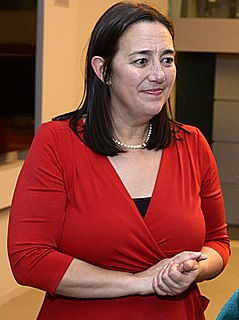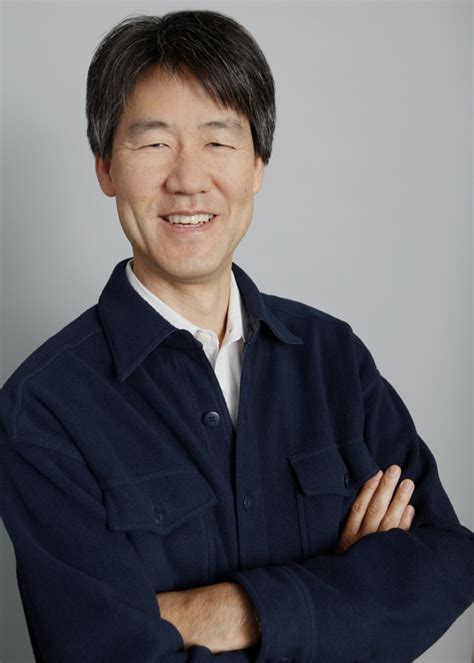Top 201 Pupils Quotes & Sayings - Page 4
Explore popular Pupils quotes.
Last updated on April 15, 2025.
A Dominican monk, Father Henri Didon, used it as a watchword for his pupils in sports at Arcueil College in Paris. Baron Pierre De Coubertin, founder of the modern Olympics, made it the Olympic Games ideal adopted at the Antwerp Games in 1920. I never mentioned winning to my players. I mentioned constantly that all I wanted them to do was the best they could. If they're good enough, the score will be to their liking; if they're not, it won't be but that's nothing to hang their head about. Sometimes the other fellow is just better than you are.
If they embark on this course the difference between the old and the new education will be an important one. Where the old initiated, the new merely 'conditions'. The old dealt with its pupils as grown birds deal with young birds when they teach them to fly; the new deals with them more as the poultry-keeper deals with young birds- making them thus or thus for purposes of which the birds know nothing. In a word, the old was a kind of propagation-men transmitting manhood to men; the new is merely propaganda.
When I recall my teachers at school, I realise that half of them were abnormal. . . . We pupils of old Austria were brought up to respect old people and women. But on our professors we had no mercy; they were our natural enemies. The majority of them were somewhat mentally deranged, and quite a few ended their days as honest-to-God lunatics! . . . I was in particular bad odor with the teachers. I showed not the slightest aptitude for foreign languages - though I might have, had not the teacher been a congenital idiot. I could not bear the sight of him.
When I'm standing in the middle of the salt flats, where you swear that the pupils of your eyes have turned white because of the searing heat that is rising from the desert, I think of my childhood, I think of my mother, my father, my grandparents; I think of the history that we hold there and it is beautiful to me. But it is both a blessing and a burden to be rooted in place. It's recognizing the pattern of things, almost feeling a place before you even see it. In Southern Utah, on the Colorado plateau where canyon walls rise upward like praying hands, that is a holy place to me.
What I mean is that if you really want to understand something, the best way is to try and explain it to someone else. That forces you to sort it out in your mind. And the more slow and dim-witted your pupil, the more you have to break things down into more and more simple ideas. And that's really the essence of programming. By the time you've sorted out a complicated idea into little steps that even a stupid machine can deal with, you've learned something about it yourself... The teacher usually learns more than the pupils. Isn't that true?
His vision, from the constantly passing bars, has grown so weary that it cannot hold anything else. It seems to him there are a thousand bars, and behind the bars, no world. As he paces in cramped circles, over and over, the movement of his powerful soft strides is like a ritual dance around a center in which a mighty will stands paralyzed. Only at times, the curtain of the pupils lifts, quietly. An image enters in, rushes down through the tense, arrested muscles, plunges into the heart and is gone.
In his wretched life of less than twenty-seven years Abel accomplished so much of the highest order that one of the leading mathematicians of the Nineteenth Century could say without exaggeration, "Abel has left mathematicians enough to keep them busy for five hundred years." Asked how he had done all this in the six or seven years of his working life, Abel replied, "By studying the masters, not the pupils."
The teacher not only shapes the expectations and ambitions of her pupils, but she also influences their attitudes toward their future and themselves. If she is unskilled, she leaves scars on the lives of youth, cuts deeply into their self-esteem, and distorts their image of themselves as human beings. But if she loves her students and has high expectations of them, their self-confidence will grow, their capabilities will develop, and their future will be assured.
The stories my pupils told me were astonishing. One told how he had witnessed his cousin being shot in the back five times; another how his parents had died of AIDS. Another said that he'd probably been to more funerals than parties in his young life. For me - someone who had had an idyllic, happy childhood - this was staggering.
If nature be regarded as the teacher and we poor human beings as her pupils, the human race presents a very curious picture. We all sit together at a lecture and possess the necessary principles for understanding it, yet we always pay more attention to the chatter of our fellow students than to the lecturer's discourse. Or, if our neighbor copies something down, we sneak it from him, stealing what he himself may have heard imperfectly, and add it to our own errors of spelling and opinion.
As for our pupils talk, let his virtue and his sense of right and wrong shine through it and have no guide but reason. Make him understand that confessing an error which he discovers in his own argument even when he alone has noticed it is an act of justice and integrity, which are the main qualities he pursues; stubbornness and rancour are vulgar qualities, visible in common souls whereas to think again, to change one's mind and to give up a bad case on the heat of the argument are rare qualities showing strength and wisdom.
The reason for teaching history is not that it changes society, but that it changes pupils; it changes what they see in the world, and how they see it.... To say someone has learnt history is to say something very wide ranging about the way in which he or she is likely to make sense of the world. History offers a way of seeing almost any substantive issue in human affairs, subject to certain procedures and standards, whatever feelings one may have.
And Harry, with the unerring skill of the Seeker, caught the wand in his free hand as Voldemort fell backward, arms splayed, the slit pupils of the scarlet eyes rolling upward. Tom Riddle hit the floor with a mundane finality, his body feeble and shrunken, the white hands empty, the snakelike face vacant and unknowing. Voldemort was dead, killed by his own rebounding curse, and Harry stood with two wands in his hands, staring down at his enemy's shell.
How shall I admire, how laugh, how rejoice, how exult, when I behold so many
proud monarchs groaning in the lowest abyss of darkness; so many
magistrates liquefying in fiercer flames than they ever kindled against the
Christians; so many sages philosophers blushing in red-hot fires with their
deluded pupils; so many tragedians more tuneful in the expression of their
own sufferings; so many dancers tripping more nimbly from anguish then
ever before from applause.
I have a true aversion to teaching. The perennial business of a professor of mathematics is only to teach the ABC of his science; most of the few pupils who go a step further, and usually to keep the metaphor, remain in the process of gathering information, become only Halbwisser [one who has superficial knowledge of the subject], for the rarer talents do not want to have themselves educated by lecture courses, but train themselves. And with this thankless work the professor loses his precious time.
Will’s eyes met Tessa’s as she came closer, almost tripping again over the torn hem of her gown. For a moment, they were in perfect understanding. Jem was what they could still look each other straight in the eye about. On the topic of Jem, they were both fierce and unyielding. Tessa saw Will’s hand tighten on Jem’s sleeve. “She’s here,” he said. Jem’s eyes opened slowly. Tessa fought to keep the look of shock from her face. His pupils were blown out, his irises a thin ring of silver around the black. “Ni shou shang le ma, quin ai de?” he whispered.
Passive acceptance of the teacher's wisdom is easy to most boys and girls. It involves no effort of independent thought, and seems rational because the teacher knows more than his pupils; it is moreover the way to win the favour of the teacher unless he is a very exceptional man. Yet the habit of passive acceptance is a disastrous one in later life. It causes man to seek and to accept a leader, and to accept as a leader whoever is established in that position.
The modern State exists not to protect our rights but to do us good or make us good - anyway, to do something to us or to make us something. Hence the new name 'leaders' for those who were once 'rulers'. We are less their subjects than their wards, pupils, or domestic animals. There is nothing left of which we can say to them, 'Mind your own business.' Our whole lives are their business.
That small word "Force," they make a barber's block, Ready to put on Meanings most strange and various, fit to shock Pupils of Newton.... The phrases of last century in this Linger to play tricks- Vis viva and Vis Mortua and Vis Acceleratrix:- Those long-nebbed words that to our text books still Cling by their titles, And from them creep, as entozoa will, Into our vitals. But see! Tait writes in lucid symbols clear One small equation; And Force becomes of Energy a mere Space-variation.
Almost all education has a political motive: it aims at strengthening some group, national or religious or even social, in the competition with other groups. It is this motive, in the main, which determines the subjects taught, the knowledge offered and the knowledge withheld, and also decides what mental habits the pupils are expected to acquire. Hardly anything is done to foster the inward growth of mind and spirit; in fact, those who have had the most education are very often atrophied in their mental and spiritual life.
It's a long shot, it's suicide maybe, but I do the only thing I can think of. I lean in and kiss Peeta full on the mouth. His whole body starts shuddering, but I keep my lips pressed to his until I have to come up for air. My hands slide up his wrists to clasp his. "Don't let him take you from me." Peeta's panting hard as he fights the nightmares raging his head. "No. I don't want to. . ." I clench his hands to the point of pain. "Stay with me." His pupils contract to pinpoints, dilate again rapidly, and then return to something resembling normalcy. "Always," he murmurs.


















